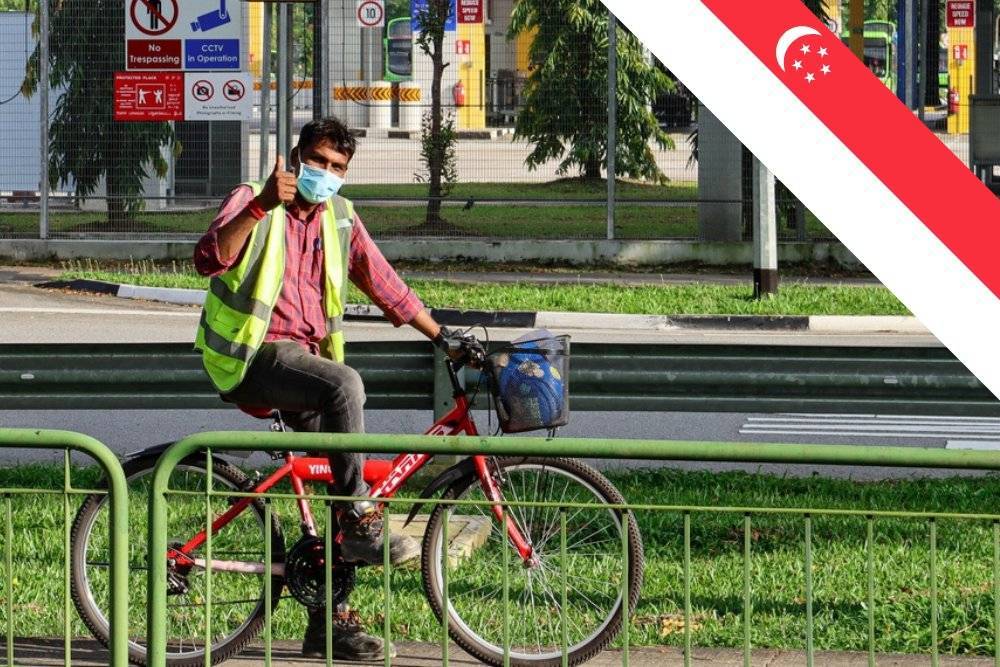In Singapore, about 1.4 million people, or 1 in 4 people, are migrant workers. Commonly, we hear how migrant workers build our homes, our schools, our workplaces, our hospitals, and so on. While we recognise the importance of migrant workers in Singapore, what health risks may be posed to them?
As the physical health risks for migrant workers vary depending on the job scope of the individual, this article focuses on the different health risks of migrant workers.
In a recent interview, former Prime Minister Lee Hsien Loong took stock of his 20-year tenure as prime minister. Mr Lee emphasised that Singapore has to bring in more foreign talent and that it is “crucial to integrate them into society.”
Social Isolation
Social isolation refers to a state of detachment where an individual has little to no social support or contact. Migrant workers have to leave their families to work abroad. As a result, some may feel that they have also left behind their support system. Due to language and cultural barriers, it can be hard for them to integrate into their new surroundings, and they may feel detached.
Large Amounts of Stress
Some migrant workers fear for their jobs and fear being sent back to their country. Some might compare themselves with other workers in the company and feel insecure. They may also not be used to the fast-paced work environment in Singapore and thus feel high-stress levels.
The stress worsens as the stakes are higher for migrant workers abroad. This is because their precious time and money are involved in being able to travel overseas to work. Also, there is additional pressure from their families to work hard so they can send money back home.
Depression
Due to a combination of factors migrant workers may face, such as those listed above or even family issues back home, migrant workers are at risk of experiencing major depressive disorder, also known as depression.
Depression is a mood disorder where the patient experiences persistent feelings of sadness. Migrant workers might be unaware of the severity of their mental health issues or face high levels of stigma towards mental illness in their home countries. Hence, they may suffer in silence and avoid seeking help, worsening their situation.
Additionally, time and money constraints make it harder for foreigners to access healthcare in Singapore. This adds to the burden of their unmet needs for mental health support.
Heat Exhaustion
Migrant workers in Singapore, particularly those in construction and outdoor labour, are at high risk of heat exhaustion. The tropical climate, characterised by high temperatures and humidity, poses a significant threat. Prolonged exposure to such conditions without adequate hydration and rest can lead to heat exhaustion, manifesting symptoms such as heavy sweating, rapid pulse, dizziness, and fatigue. In severe cases, heat exhaustion can progress to heat stroke, a life-threatening condition that requires immediate medical attention. To mitigate these risks, Employers must ensure that workers have access to shade, water, and regular breaks.
Other Physical Health Risks
Beyond heat exhaustion, migrant workers face various other physical health risks. These include musculoskeletal injuries from heavy lifting and repetitive motions, respiratory problems due to exposure to dust and pollutants, and occupational hazards specific to their job roles, such as falls from heights in construction. Additionally, inadequate access to healthcare can exacerbate these issues, as workers may delay seeking treatment due to financial constraints or fear of job loss. Regular health check-ups, proper safety training, and the provision of personal protective equipment are essential to safeguarding the health of migrant workers.
Conclusion
Due to their circumstances, migrant workers might be at a higher risk of developing mental health issues. Therefore, it is important to promote their mental well-being and provide them with social support as much as possible. Although some may have stereotypes about them and think they are less educated, they are still humans who deserve to be respected. In fact, they are valuable members of society who contribute to our nation-building.
Have a pressing question for a doctor? Medical Channel Asia has launched a community forum page where you can get questions answered by a medical specialist. Visit the community forum here.

